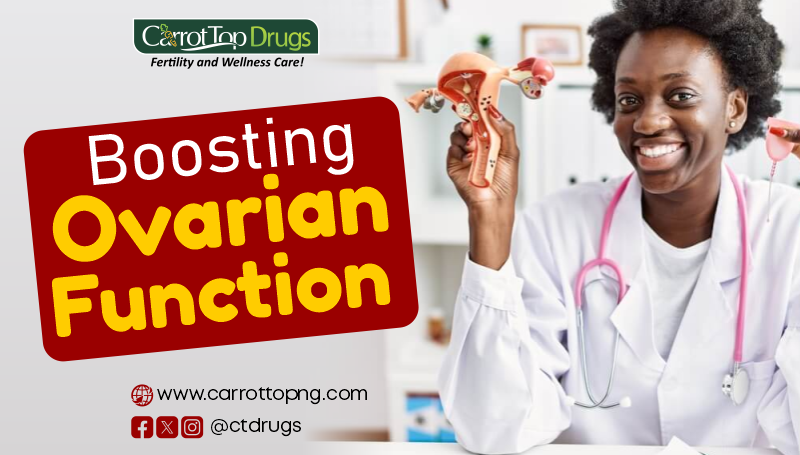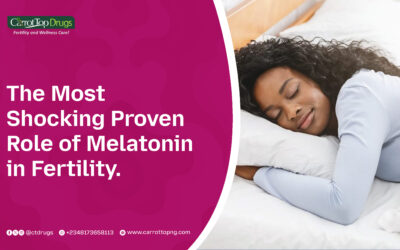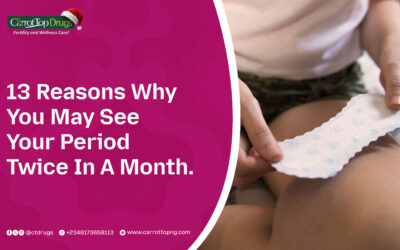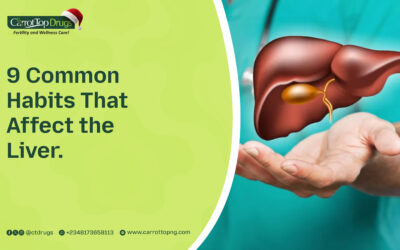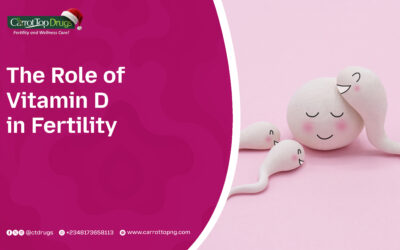Introduction:
Boosting ovarian function is crucial for women striving to enhance their reproductive health and fertility. The ovaries play a central role in hormone production and egg release, influencing menstrual cycles and the ability to conceive. Strategies aimed at supporting hormonal balance and enhancing fertility potential are essential for boosting ovarian function. These strategies encompass various approaches, including lifestyle adjustments, medical interventions, and holistic practices. Understanding the importance of ovarian health and implementing targeted interventions can empower women in their journey towards improved reproductive outcomes.
Prevalence of Poor Ovarian Function and Ovarian Failure in Women
Premature ovarian insufficiency (POI), characterized by early depletion of ovarian follicles and impaired ovarian function, affects approximately 1 in 100 women under the age of 40. POI can result from various factors, including genetic disorders, autoimmune conditions, chemotherapy or radiation therapy for cancer treatment, and certain medical conditions such as Turner syndrome.
Common Problems That Can Affect Ovarian Function
1. Premature Ovarian Insufficiency (POI):
Premature ovarian insufficiency, also known as premature ovarian failure, occurs when the ovaries cease functioning before the age of 40. This condition is characterized by a decline in ovarian follicles and hormone production, leading to irregular menstrual cycles, infertility, and symptoms resembling menopause. POI can result from genetic factors, autoimmune disorders, chemotherapy or radiation therapy, or certain medical conditions such as Turner syndrome.
According to a reserch by Rihwa Choi et al., the prevalence of diminished ovarian reserve is between 37.2%.
2. Diminished Ovarian Reserve (DOR):
Diminished ovarian reserve refers to a decrease in the quantity or quality of ovarian follicles, leading to reduced fertility potential and challenges with conception. Women with DOR may experience irregular menstrual cycles, difficulty conceiving, and an increased risk of infertility. Risk factors for DOR include advanced maternal age, previous ovarian surgery, exposure to chemotherapy or radiation therapy, and certain genetic conditions.
3. Polycystic Ovary Syndrome (PCOS):
Polycystic ovary syndrome is a hormonal disorder characterized by enlarged ovaries with multiple small cysts, irregular menstrual cycles, and elevated androgen levels. PCOS can disrupt ovarian function, leading to irregular ovulation, anovulation, and infertility. Other symptoms of PCOS may include hirsutism, acne, and insulin resistance. The exact cause of PCOS is unknown but likely involves genetic and environmental factors.
4. Endometriosis:
Endometriosis is a chronic condition characterized by the growth of endometrial-like tissue outside the uterus, commonly on the ovaries and surrounding pelvic organs. It can affect ovarian function by causing inflammation, adhesions, and ovarian cysts (endometriomas), leading to pelvic pain, menstrual irregularities, and infertility. The precise mechanisms underlying the association between endometriosis and ovarian dysfunction are complex and not fully understood.
5. Autoimmune Ovarian Disorders:
Autoimmune disorders affecting the ovaries, such as autoimmune oophoritis, can result in ovarian dysfunction and hormone deficiencies. These conditions occur when the immune system mistakenly attacks ovarian tissue, leading to inflammation, follicular destruction, and impaired hormone production. Autoimmune ovarian disorders may present with symptoms such as amenorrhea, infertility, and signs of ovarian insufficiency.
Common Signs and Symptoms of Problems with Ovarian Function in Women
1. Irregular Menstrual Cycles:
Irregular menstrual cycles, characterized by variations in cycle length, duration, or flow, are a common sign of ovarian dysfunction. Women may experience missed periods, frequent spotting, or unpredictable menstrual patterns, indicating hormonal imbalances or ovulatory disorders.
2. Difficulty Conceiving:
Difficulty conceiving, or infertility, is often associated with ovarian dysfunction. Women with irregular ovulation, diminished ovarian reserve, or conditions such as polycystic ovary syndrome (PCOS) may struggle to achieve pregnancy despite regular unprotected intercourse.
3. Menopausal Symptoms:
Menopausal symptoms such as hot flashes, night sweats, vaginal dryness, and mood changes can occur in women with ovarian dysfunction, particularly those experiencing premature ovarian insufficiency (POI) or early menopause. These symptoms result from hormonal fluctuations and estrogen deficiency.
4. Decreased Libido:
Changes in libido or sexual desire may be observed in women with ovarian dysfunction, reflecting alterations in hormone levels and reproductive function. Decreased libido can impact sexual satisfaction and intimate relationships, affecting overall quality of life.
5. Mood Changes:
Mood changes, including irritability, anxiety, depression, or mood swings, may accompany ovarian dysfunction. Hormonal fluctuations, particularly estrogen and progesterone imbalances, can influence neurotransmitter activity and emotional well-being, contributing to mood disturbances.
Boosting Ovarian Function
Boosting ovarian function is essential for women aiming to optimize their reproductive health and fertility. Several strategies can support ovarian health and enhance fertility potential, encompassing lifestyle modifications, medical interventions, and holistic approaches.
1. Nutritious Diet:
A balanced and nutritious diet plays a crucial role in boosting ovarian function. Consuming a variety of nutrient-rich foods, including fruits, vegetables, whole grains, lean proteins, and healthy fats, provides essential vitamins, minerals, and antioxidants necessary for ovarian health. Incorporating foods rich in omega-3 fatty acids, such as salmon and flaxseeds, can help reduce inflammation and support hormonal balance, thus boosting ovarian function.
2. Regular Exercise
Engaging in regular physical activity is beneficial for ovarian function and overall reproductive health. Exercise improves blood circulation, reduces stress, and helps maintain a healthy weight, all of which contribute to optimal ovarian function. Aim for at least 30 minutes of moderate-intensity exercise most days of the week to support hormonal balance and boost ovarian function.
3. Maintaining a Healthy Weight:
Achieving and maintaining a healthy weight is essential for boosting ovarian function. Both obesity and being underweight can adversely affect ovarian health and hormonal balance, leading to irregular menstrual cycles and ovulatory dysfunction. Adopting healthy eating habits and regular exercise can help maintain a healthy weight and support optimal ovarian function.
4. Stress Management:
Chronic stress can negatively impact ovarian function by disrupting hormone levels and menstrual cycles. Incorporating stress-reducing techniques such as mindfulness meditation, yoga, deep breathing exercises, or massage therapy into your daily routine can help alleviate stress and promote hormonal balance, thus boosting ovarian function.
5. Fertility Awareness:
Monitoring menstrual cycles and ovulation can provide valuable insights into ovarian function and fertility. Tracking basal body temperature, cervical mucus consistency, and using ovulation predictor kits such as PREDICTE OVULATION TEST KIT can help identify fertile windows and optimize timing for conception. Fertility awareness methods empower women to understand their reproductive cycles and make informed decisions to boost ovarian function.
6. Medical Interventions:
In cases of underlying ovarian dysfunction or infertility, medical interventions may be necessary to boost ovarian function and improve fertility outcomes. Fertility medications such as clomiphene citrate or letrozole can stimulate ovulation and enhance ovarian function in women with ovulatory disorders. Assisted reproductive technologies (ART) such as in vitro fertilization (IVF) may be recommended for women with severe ovarian dysfunction or diminished ovarian reserve.
7. Supplements:
Aside from the above mentioned ways, complementary therapies and holistic approaches can complement conventional treatments in boosting ovarian function. Acupuncture, herbal medicine, and nutritional supplements may help regulate hormone levels, improve ovarian function, and enhance fertility. Such supplements are Evergreen Formula for Women and Evergreen Eggboost for Women.
Conclusion
In conclusion, adopting a multifaceted approach encompassing lifestyle modifications, medical interventions, and holistic strategies is essential for boosting ovarian function and optimizing reproductive health. By prioritizing factors such as nutrition, exercise, stress management, and fertility awareness, women can support hormonal balance, enhance ovarian function, and improve fertility outcomes. Additionally, seeking medical guidance when necessary and exploring complementary therapies can further contribute to boosting ovarian function and increasing the likelihood of achieving conception.
FAQs
Q: What is ovarian function?
A: Ovarian function refers to the ovaries’ ability to produce hormones such as estrogen and progesterone, as well as release eggs during ovulation, crucial for reproductive health.
Q: How can I boost ovarian function?
A: Boosting ovarian function involves adopting a healthy lifestyle, including a balanced diet, regular exercise, stress management, and fertility awareness. Medical interventions and complementary therapies may also be beneficial.
Q: Can lifestyle modifications improve ovarian function?
A: Yes, lifestyle modifications such as maintaining a healthy weight, exercising regularly, and managing stress can support hormonal balance and enhance ovarian function.
Q: What medical interventions are available for ovarian dysfunction?
A: Fertility medications, assisted reproductive technologies (ART), and hormone replacement therapy (HRT) are common medical interventions used to address ovarian dysfunction and improve fertility outcomes.
Q: Are there natural remedies to boost ovarian function?
A: Some complementary therapies such as acupuncture, herbal medicine, and nutritional supplements may help regulate hormone levels and support ovarian function, but evidence is limited.
Q: Can boosting ovarian function increase fertility?
A: Yes, by supporting hormonal balance and optimizing ovarian function, women may experience improved fertility potential and an increased likelihood of conception.

